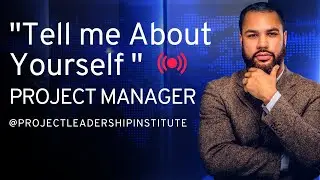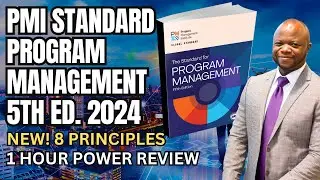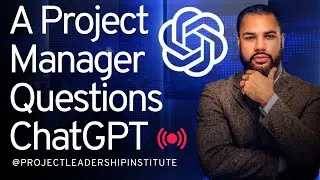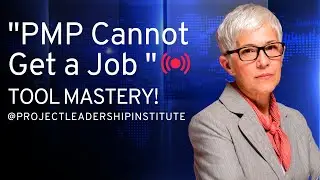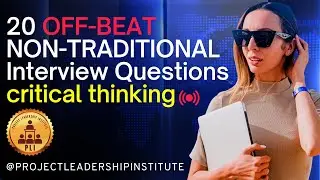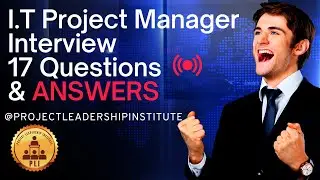Traditional Project Management Mastery (PMBOK Process Review)
Traditional Project Management Mastery:
Master the 49 PMBOK processes step by step. Come away feeling confident!
Join my class: https://projectmanagementdoctor.com/p...
Traditional Project Management Mastery: A Deep Dive into the PMBOK Process
The Project Management Body of Knowledge (PMBOK) is the cornerstone of traditional project management. It provides a comprehensive framework for managing projects effectively and efficiently. This guide will delve into the key processes outlined in the PMBOK, offering insights into their significance and application.
The PMBOK Process Groups
The PMBOK organizes project management processes into five process groups:
Initiating: This is where the project is conceived and authorized. Key processes include project charter development and identifying stakeholders.
Planning: This phase focuses on defining the project scope, creating a work breakdown structure (WBS), developing a project schedule, and estimating costs.
Executing: This is the phase where the project work is performed. Key processes include directing and managing project work, acquiring project team members, and performing quality assurance.
Monitoring and Controlling: This involves tracking project progress, managing changes, and performing integrated change control.
Closing: This final phase involves formal project closure and administrative closure.
Core Knowledge Areas
The PMBOK also covers ten knowledge areas, which provide detailed guidance on specific project management functions. These include:
Project Integration Management
Project Scope Management
Project Time Management
Project Cost Management
Project Quality Management
Project Human Resource Management
Project Communications Management
Project Risk Management
Project Procurement Management
Project Stakeholder Management
Mastering the PMBOK
To truly master traditional project management, it's essential to:
Understand the underlying principles: Grasp the core concepts and philosophies behind the PMBOK.
Apply the processes: Learn how to implement the processes in real-world projects, adapting them as needed.
Develop strong project management skills: Cultivate leadership, communication, and problem-solving abilities.
Continuously learn and adapt: Stay updated on industry trends and best practices.
Challenges and Considerations
While the PMBOK offers a robust framework, it's essential to recognize its limitations. Traditional project management can be rigid and less adaptable to changing environments. Agile methodologies have gained popularity for their flexibility. However, the PMBOK still provides a solid foundation for many projects.
Want to create live streams like this? Check out StreamYard: https://streamyard.com/pal/d/56886751...









